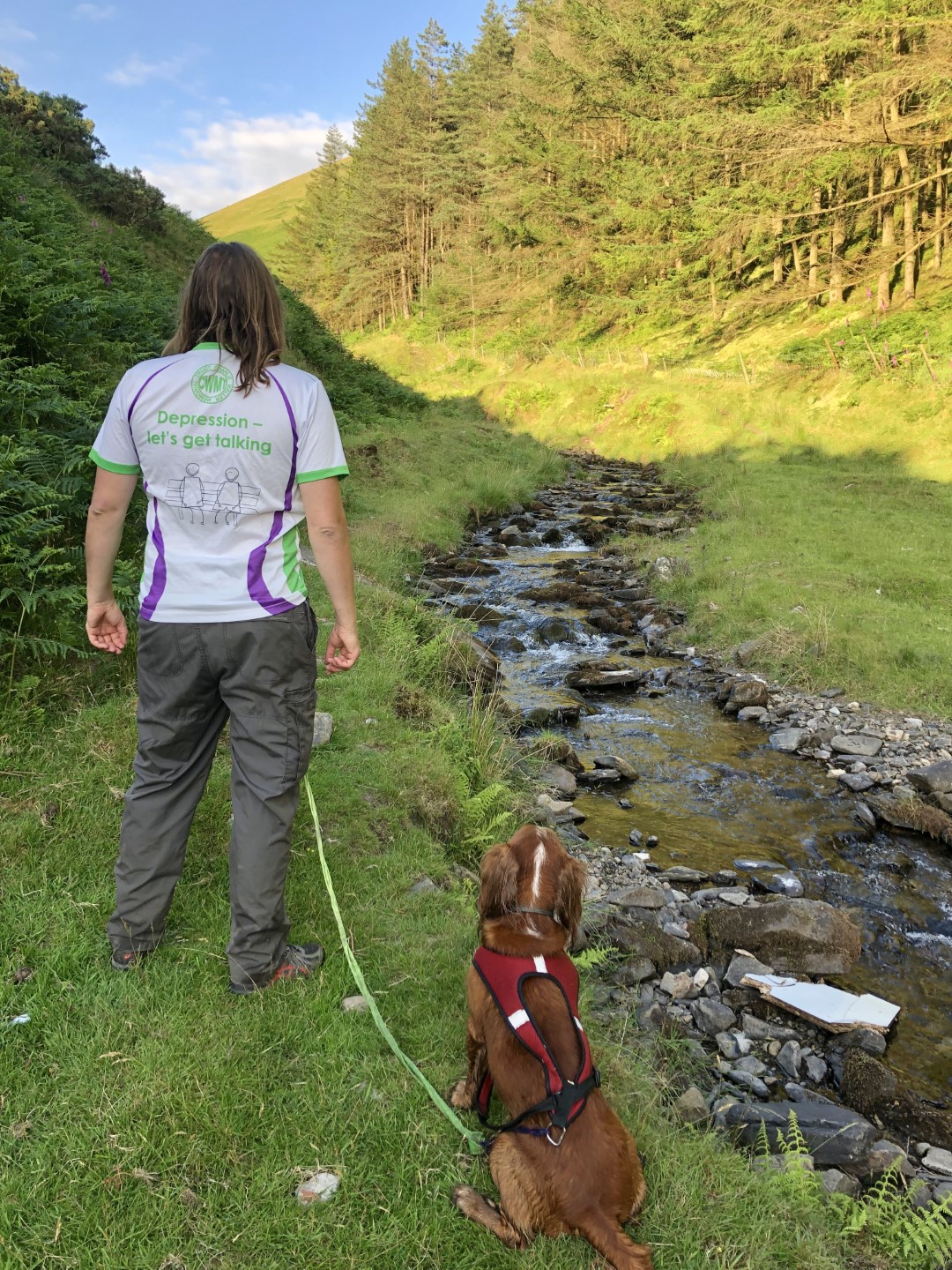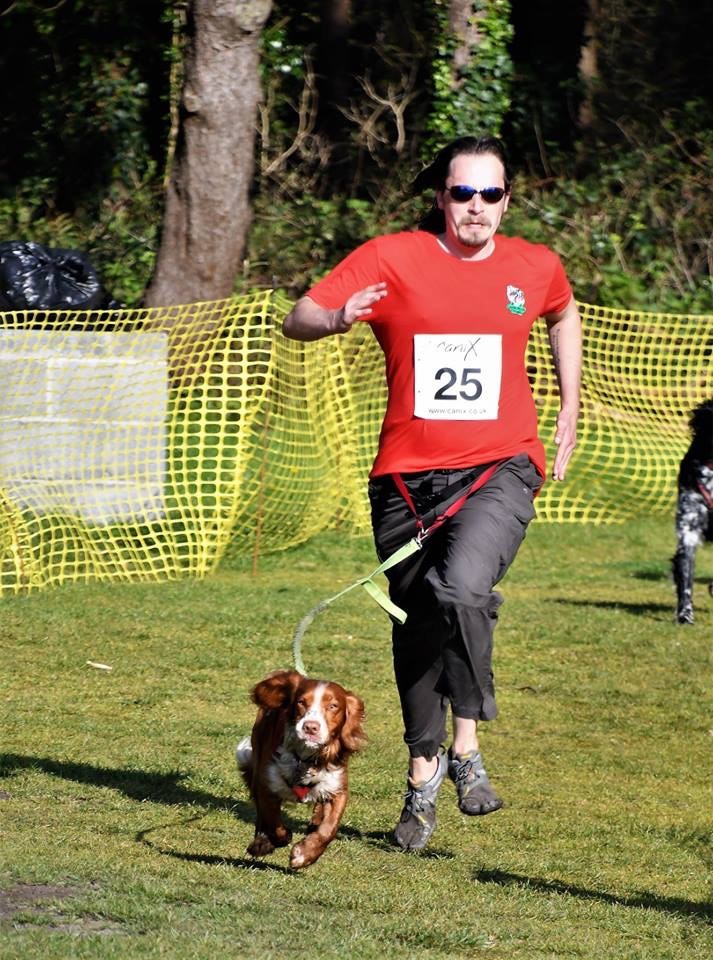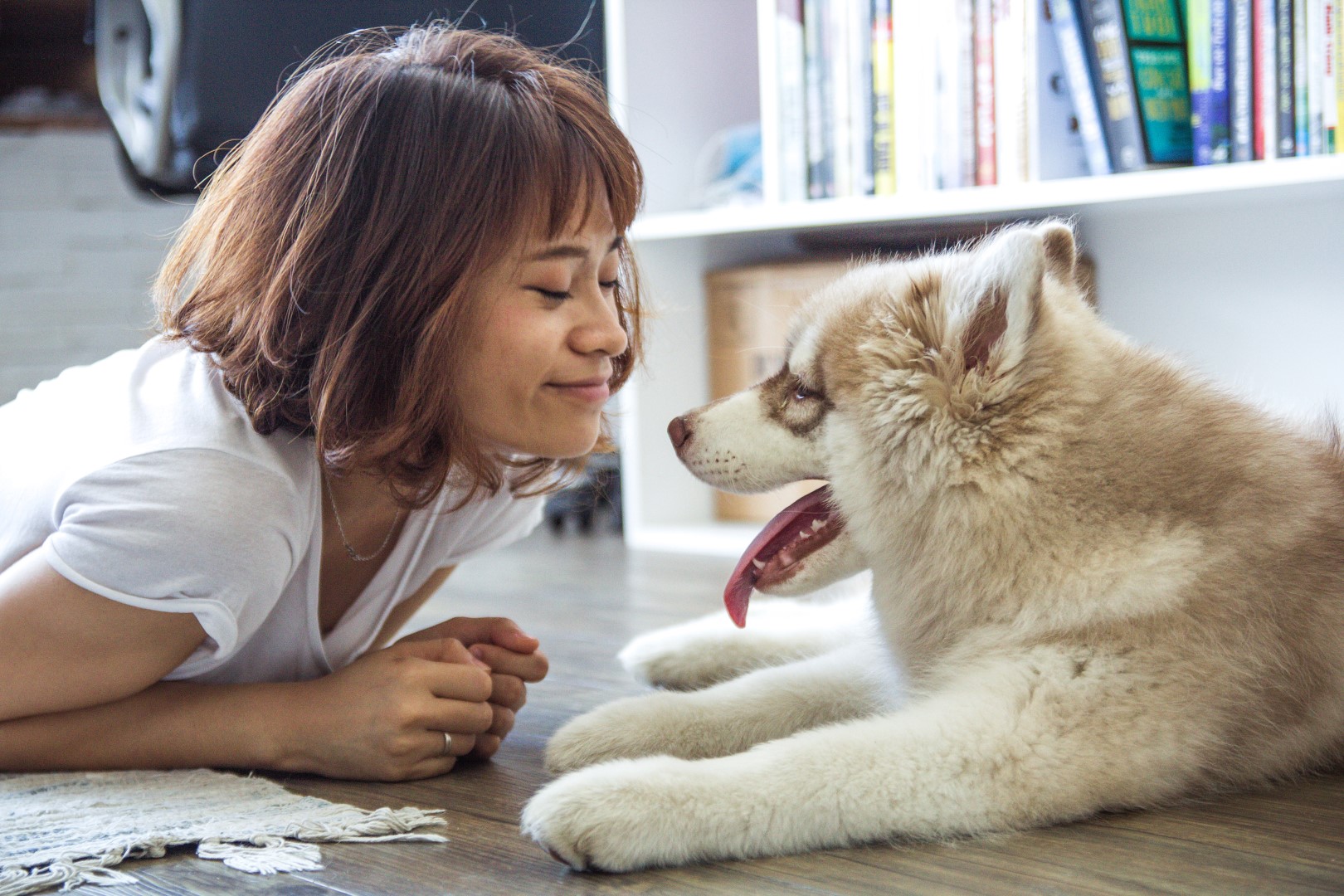Pets and mental wellbeing during lockdown
April 13 2020

The relationship we have with our pets has been even more important this year, with our daily lives being turned upside down by the COVID-19 lockdown.
In the spirit of the Charlie Waller Trust #5aDayWellbeing Challenge, I thought it might be helpful to run through the role that pets can play in looking after our mental wellbeing.

Connect
For people living with mental health issues or for those who live alone, the emotional support provided by pets can be been especially important. In 2018 a team from the University of Liverpool conducted a systematic review of the role of companion animals, highlighting that out of seventeen studies, fifteen of them reported positive aspects of pet ownership for people with mental health issues. Those being interviewed spoke about how owning a pet provided constant companionship and reassurance, unconditional love and even an intuitive sense of when they were struggling.
For me, living with borderline personality disorder means periods of extreme emotional distress, and being in isolation has led to some difficult moments. Monty, my four year old working cocker spaniel, is particularly adept at reading my moods and will often come and snuggle up next to me when I am struggling.

Be Active
Monty and I are extremely lucky to live in the beautiful South Wales valleys, surrounded by stunning views and miles of trails directly outside our front door. We have made the most out of our hour of allowed exercise to get active, heading out in the hills for numerous walks. Over the years Monty and I have taken part in a number of canicross events including two trail marathons, and exercise has played a huge role in maintaining my mental wellbeing.
I recognise that many people do not live within easy access of these kinds of surroundings, even a short walk in the park can help keep you physically fit, which we know has a huge impact on mental health.
Keep Learning
It is important to be aware that in addition to the impact that social isolation is having upon our mental health, having their humans at home all the time will be a huge change for pets, and many will struggle to adapt. In a recent BBC News report, pet owners were asked about how their pets were coping and a number of people reported cats and dogs acting in a variety of ways, from extra needy through to aloof or even becoming aggressive at times.
Pets, just like us, need mental stimulation as well as physical exercise to keep happy and healthy. From puzzle toys to hide and seek, or teaching them new skills and introducing new toys, these activities can help our pets learn to solve problems, build a bond and keep them engaged and interested. These activities are also great for pet owners, helping them learn new skills and get creative coming up with new and interesting ideas.

Give
Having a pet, especially during isolation, can also be extremely beneficial for creating a sense of structure throughout the day. Being asked to remain at home can lead to a complete loss of motivation, with days when even the idea of getting dressed or out of bed seems pointless. Being a pet owner, their needs need to be fulfilled including toileting, feeding, exercise and mental stimulation, and this helps give each day a sense of purpose. It is often said that dogs have owners whereas cats have butlers, but regardless of what pet you own, being able to give care and love to another living being can help boost our sense of self and promote positive waves of emotion.
Take Notice
During these difficult times, it is incredibly important to be tuned into how we are feeling, being aware of our early warning signs that we are struggling to cope and taking positive steps to look after ourselves. When it comes to our pets, we also need to become tuned in to how they might be feeling, as their ways of communicating will often be subtle. We need to remember that just like us, our pets often need some time alone to recharge and refresh – they are not just our playthings and a source of entertainment but instead have a complex emotional make-up which needs nurturing and protecting.
Animal behaviourists have warned that when life returns to normal, pets who have become used to having us around the whole time might struggle with separation anxiety when their owners start returning to work and school. We need to take notice of how we are living our lives and the impact this is having, taking proactive steps to ensure they have time alone in preparation for this shift.

Having a pet can be a wonderful source of love, support, companionship and motivation, and during these difficult times this is more important than ever. We need to remember that this is a mutual relationship, working hard to ensure that all those involved benefit and feel safe and reassured. Please look after one another, keep safe, stay home and protect the NHS.
Andy Caress, Charlie Waller Mental Health Trainer
References
Brooks, H., Rushton, K., Lovell, K., Bee, P., Walker, L., Grant, L. and Rogers, A. (2018) ‘The power of support from companion animals for people living with mental health problems: a systematic review and narrative synthesis of the evidence’, BMC Psychiatry 18(31)
Burchell, H. (2020) Coronavirus lockdown: How are our pets coping with us?,
Charlie Waller Trust 5 a Day Wellbeing Challenge
Johnson, J. (2020) 20+ Ways to Mentally Stimulate Your Dog, Top Dog Tips
Related
Popular
Upcoming event

Join us for the Bath Half Marathon to support young people and their mental health!

The Charlie Waller Trust
The Charlie Waller Trust is a registered charity in England and Wales 1109984. A company limited by guarantee. Registered company in England and Wales 5447902. Registered address: The Charlie Waller Trust, First Floor, 23 Kingfisher Court, Newbury, Berkshire, RG14 5SJ.
Copyright © 2025 The Charlie Waller Trust. All rights reserved.






